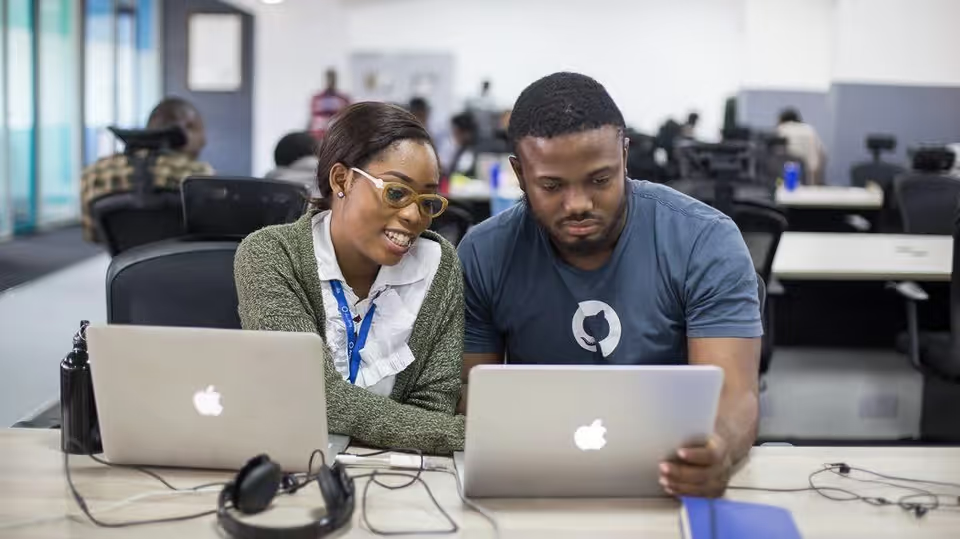Despite the slow internet in lower-income countries (including most of Africa), residents need to work three times more to access internet services due to the high data plan prices in these countries.
In Nigeria, MTN in September 2022 disclosed that the prices of its data bundles have been reviewed upward. Airtel also modified its prices for the country’s 52 million active internet subscriptions.
In its latest Digital Quality of Life report on the global internet divide study, Surfshark revealed that this will affect the digital divide on the continent. As of October 2022, the internet in Africa is 83% less affordable than in Oceania (the region with the most affordable internet), and the gap between these two regions keeps expanding each year.
Surfshark’s analysis highlights that Africa experiences the sharpest internet divide of all continents, with just 55% of the population having access to the internet (compared to 85% in Oceania). Such internet inequality, combined with the increased inflation rates and political uncertainties, is taking Africans on a downward spiral of economic hardship.
The launch of the Google Equiano subsea cable across the continent intends to boost internet connectivity and slash prices. A recent impact assessment study by Africa Practice and Genesis Analytics stated that once the cable becomes fully operational, internet retail prices will reduce by 21% and it will also increase internet speed by a six-factor.
Why the internet divide is a problem for Africans
According to Surfshark’s Lead Researcher Agneska Sablovskaja, “People who can not access the internet are cut off from the digital opportunities that people from higher-income countries have. Without internet access, people can’t study or work online, and they can’t grow their economy with digital exports,”
“The internet is also very slow in many African countries. Even if people can afford the internet, they still face limitations in what they can do. For instance, low internet speeds often make it very difficult to make video calls,” Sablovskaja added.
Related Article: Nigeria ranks 86th in the world by the Digital Quality of Life Index
Mobile internet divide
People from lower-income countries (including most of Africa) have to work approximately 11 minutes more than higher-income countries to afford 1GB of mobile internet that is 49 Mbps slower, according to Surfshark:
- Lower-income countries work 17 minutes for 1 GB of mobile internet with 26 Mbps.
- Higher-income countries work 6 minutes for 1 GB of mobile internet with 75 Mbps.
26 Mbps — the average mobile internet speed in lower-income countries — is 3 times slower than in higher-income countries and creates limitations in what people can do online. For instance, 26 Mbps may be enough for streaming a movie, but it’s not enough for a video call (which requires 50 Mbps).
Broadband internet divide
The situation with broadband internet is no better – lower-income countries work 8 hours more than higher-income countries to afford a fixed broadband plan that is 83 Mbps slower:
- Lower-income countries work 12 hours for broadband internet with 34.4 Mbps.
- Higher-income countries work 4 hours for broadband internet with 117.8 Mbps.
Countries that experience the sharpest internet divide
The lowest-income countries in the DQL index, Ethiopia (115th in DQL) and Mali (102nd in DQL) are also the income group that experiences the sharpest internet divide.
People from these countries work 51 minutes (which is 14 times more than the highest-income countries) for mobile internet which is 68 Mbps slower. Broadband internet in these lowest-income countries is just 19 Mbps on average but is 8 times less affordable. The difficult political climates in these countries make internet access especially important — without it, the world is left in the dark about the issues in these countries.
On a more positive note, South Africa fares the best in Africa in internet accessibility, with the most affordable and highest-quality internet.
Editor’s Note: The data quoted in this report was provided by Surfshark
Get passive updates on African tech & startups
View and choose the stories to interact with on our WhatsApp Channel
Explore




